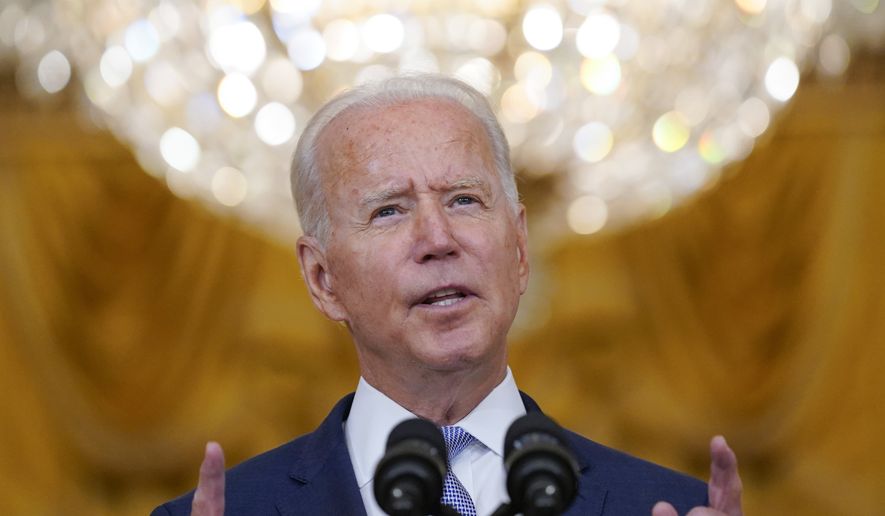House Republicans on the Transportation and Infrastructure Committee demanded on Thursday that President Biden abandon budgetary restrictions on the fossil fuel industry in light of the White House pushing OPEC to boost oil production.
Rep. Sam Graves, the top Republican on the committee, sent the administration a letter urging a revision of its 2022 fiscal budget. As currently written, the budget prohibits the U.S. Army Corps of Engineers from engaging in any project “that directly subsidizes fossil fuels including work that lowers the cost of production, lowers the cost of consumption, or raises the revenues retained by producers of fossil fuels.”
Mr. Graves and his colleagues say such restrictions on the Corps of Engineers, which oversees thousands of public works projects across the country, amount to the federal government punishing the oil and gas industries.
“These key objectives in the budget … purport to pick winners and losers by excluding an entire industry from congressional appropriations and federal resources,” the lawmakers wrote.
Of particular concern is funding improvements by the Corp of Engineers to domestic ports and waterways, which transport oil and natural gas across the country. Mr. Graves argues that limitations will do little to alleviate rising prices at the pump.
“Without the availability of additional capacity to transport energy products to markets, Americans will experience higher energy prices and a lack of energy access,” the lawmakers wrote.
The letter comes one day after Mr. Biden publicly urged the 13 nations of OPEC to ramp up oil production. Mr. Biden, who has made combating climate change the main focus of his administration, said the move was needed as demand for gasoline has rebounded since hitting all-time lows during the coronavirus pandemic.
“The production cuts made during the pandemic should be reversed as the global economy recovers in order to lower prices for consumers,” said Mr. Biden.
In December 2020, OPEC announced that it would be slashing oil production. In July, the organization announced it would boost production by 400,000 barrels per day. Overall, however, production still lags behind pre-pandemic levels.
Complicating matters is that the pandemic also crippled domestic energy production, leaving U.S. oil wells and refineries idle. Throughout 2020, more than 120,000 energy jobs were lost because of decreased demand for oil and gas.
The situation, coupled with increased demand for gasoline as coronavirus restrictions ease, has caused a surge of prices at the pump.
Earlier this week, the national average for gasoline was around $3.20 a gallon — up from $2.20 a gallon at the same time last year. In May, gasoline prices climbed above $3 a gallon for the first time since 2014.
Republicans like Mr. Graves say rising prices have only been exacerbated by actions that Mr. Biden has taken to undercut domestic energy interests.
On his first day in office, Mr. Biden revoked permits for the Keystone XL Pipeline, which would have carried 800,000 barrels of oil per day from Canada to refineries on the Gulf Coast. Since then, the White House has pushed stringent regulations on the fossil fuel industry and has endorsed a “carbon polluter import fee.”
“Begging the Saudis to increase production while the White House ties one hand behind the backs of American energy companies is pathetic and embarrassing,” said Sen. John Cornyn, Texas Republican.
— Jeff Mordock contributed to this story.
• Haris Alic can be reached at halic@washingtontimes.com.




Please read our comment policy before commenting.